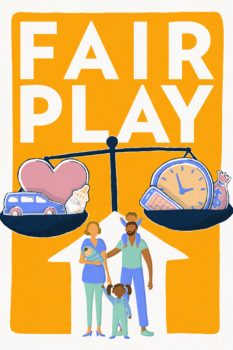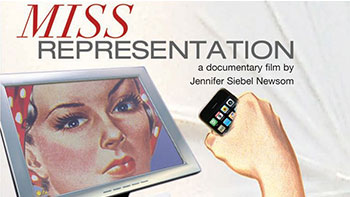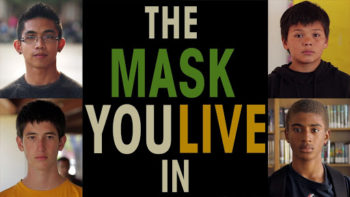Justin Timberlake and Robin Thicke have been compared throughout their careers, and the presence of naked women in their most recent music videos has only increased the talk of their similarities. However, while Thicke has come under intense fire for the sexualization of women in his “Blurred Lines” video, Timberlake’s “Tunnel Vision” video has escaped such scathing criticism. Why?
Ostensibly, the answer is art. In “Blurred Lines,” the naked women prance around the singers, who alternatively leer at them and ignore them. Props include a goat, a bicycle, and oversized dice. It’s hard to claim the imagery is artistic, and Robin Thicke himself agrees. As Elizabeth Plank wrote in her article on Policy Mic, “A Feminist Takedown of Robin Thicke and Anyone Who Thinks There’s Something Blurry About Sexism,”
If you ask Robin Thicke, the video is absolutely degrading to women. In an interview with GQ, he said, “We tried to do everything that… is completely derogatory towards women. Because all three of us are happily married with children, we were like, ‘We’re the perfect guys to make fun of this.’ Yes. Men who respect women are the ‘perfect’ people to degrade them! Like they say, it’s funny! Cause this way, women never know who they can trust! …Sorry, but there’s nothing subversive about having women and men take part in the same old stereotypes that perpetuate sexism and rape culture.
Plank’s whole article is worth a read, and addresses the other issue with “Blurred Lines”: its lyrics, which insinuate that a women can either be “domesticated” or “liberated” by a man, draw a false dichotomy between “good” and bad girls, and imply that men know better than the women themselves if they “want it” (it being sex). It is, as Plank summarized, “rapey.”
The lyrics alone are probably one reason Timberlake’s “Tunnel Vision” hasn’t faced as much scrutiny. The song is about Timberlake being so in love with one woman, that he can only see her. But while these romantic lyrics are probably the reason the song hasn’t been as criticized, the lyrics are the reason that his use of naked women in the music video stands out as so uncalled for. (Though it’s also worth noting that Timberlake’s song starts out with the creepy repetition of “I know you like it,” all too similar to Thicke’s declaration “I know you want it.”)
While Thicke’s lyrics are problematic to say the least, the song and the depictions in his music video are tied together by a clear theme. Why would Timberlake highlight numerous naked women in his video when his song is about how he can only see one woman? The messages are contradictory.
While the nudity in “Blurred Lines” has been recognized by prominent media as sexualization, the nudity in “Tunnel Vision” has been called “artistic.” As Hannah Loewentheil wrote for Policy Mic, “Both the “Blurred Lines” and “Tunnel Vision” videos cast their respective nude females in extremely similar roles. The women don’t seem to be doing anything. They seem to simply be. They have been cast to gaze at and admire.”
So why does Timberlake get a pass? Perhaps it is the presence of a fog machine and a projector that makes the video seem artsy, but if the video is art, Timberlake and director Jonathan Craven use the naked women as their canvas for creativity rather than as creative in themselves. Timberlake’s own face is event projected onto the naked women’s bodies, and his personality is the only personality they are allowed to display. At least the women in “Blurred Lines” were allowed to have a personality, even so much that model Emily Ratajkowski told GQ that they were “directed to have a sort of confidence, a sarcastic attitude… [that] really puts [them] in a power situation.”
As Alexandra Petri wrote for the Washington Post, what is problematic is “not just the double standard for the videos. It’s the fact that both have women gyrating around with Objectification cranked up to the Maximum Levels, and we still think this is somehow artsy.”
In fact, the “artsy” excuse is even accepted by YouTube, who allows Thicke’s video (the version in which models don skin-toned thongs) to stay on the site with no age restriction. While “Tunnel Vision” is labeled “explicit,” it is hosted on the site with the explanation from YouTube that the company will “make exceptions when [nudity] is presented in an educational, documentary or artistic context.” As Molly Lambert questioned in her article “Boobs at Work,” “What’s the difference between ‘artistic’ or ‘educational’ nudity and purely gratuitous body shots?”
It seems the answer might be the gender of the naked party. YouTube imposed an age restriction on this hilarious gender-swapped “Blurred Lines” parody, which features men in skin-toned thongs, even while Thicke’s original has no restriction. Our society is used to men being clothed while women are stripped down. This power dynamic isn’t a healthy environment for women’s or men’s sexuality, and encourages a rape culture in which sexual harassment is trivialized and men’s ability to empathize with women is reduced.
Even though it may be tempting to let this objectification slide when the song is catchy (and there’s no denying these songs are catchy), we have to resist having such tunnel vision. We can listen to and enjoy these songs, but we have to be aware of their messages in order to resist them. Because when we step back and see the big picture, we can tell that when the media crosses these lines – no matter how blurry – we all suffer.
Rachel Grate has interned for MissRepresentation.org and also writes for Ms. Magazine and Policy Mic. She studies English and Gender & Women’s Studies at Scripps College in Southern California. Follow her on Twitter @RachelSGrate.



